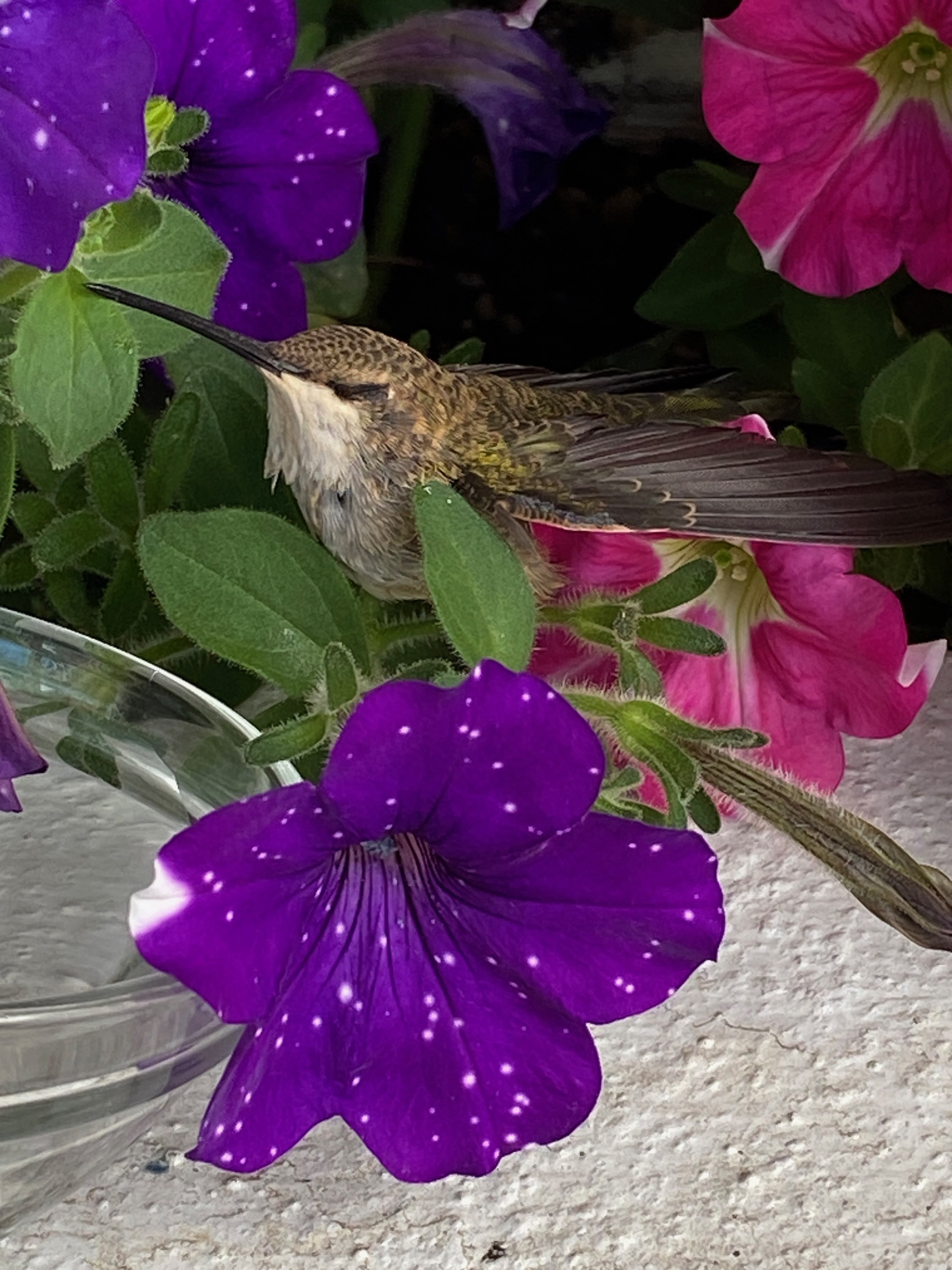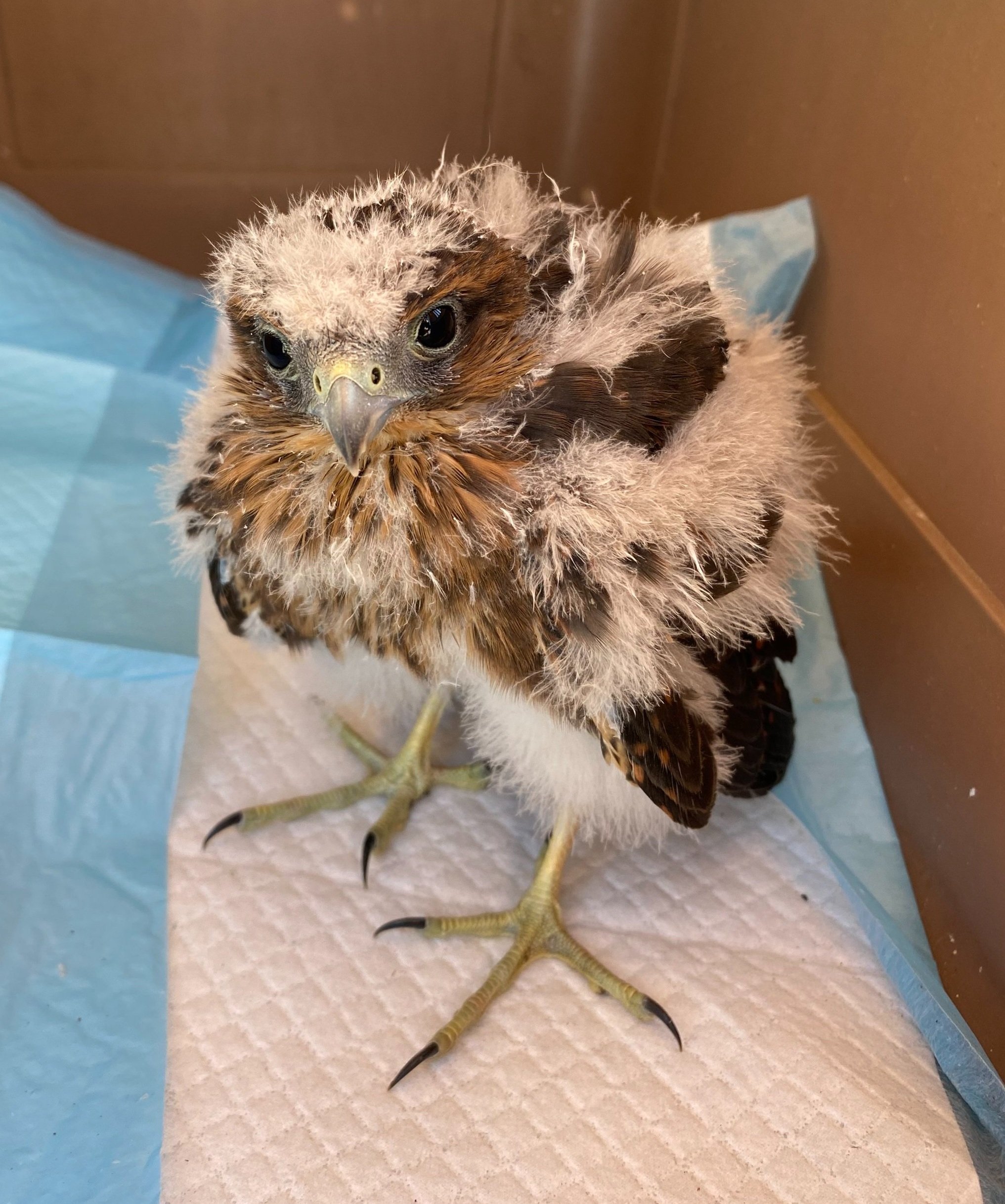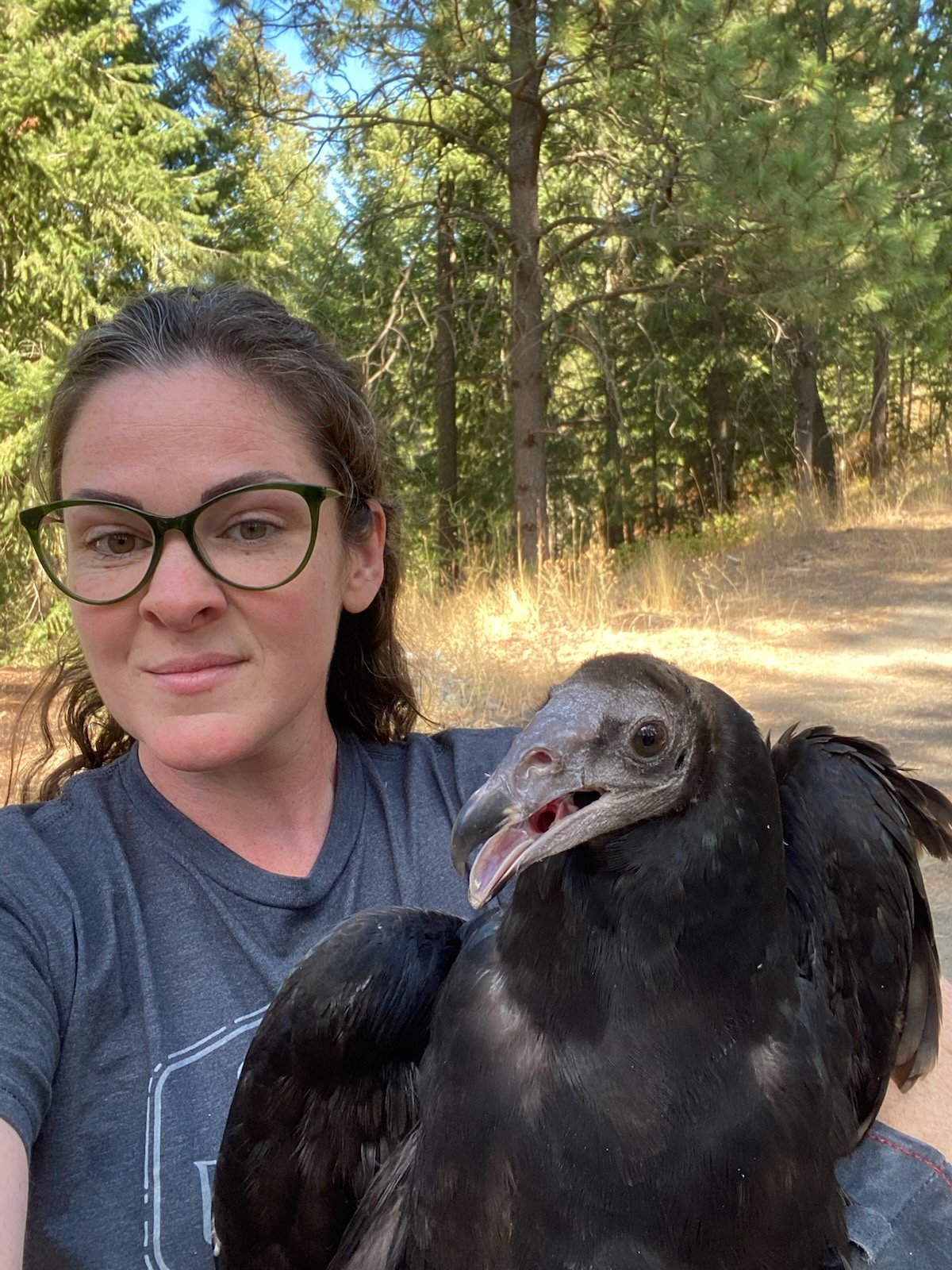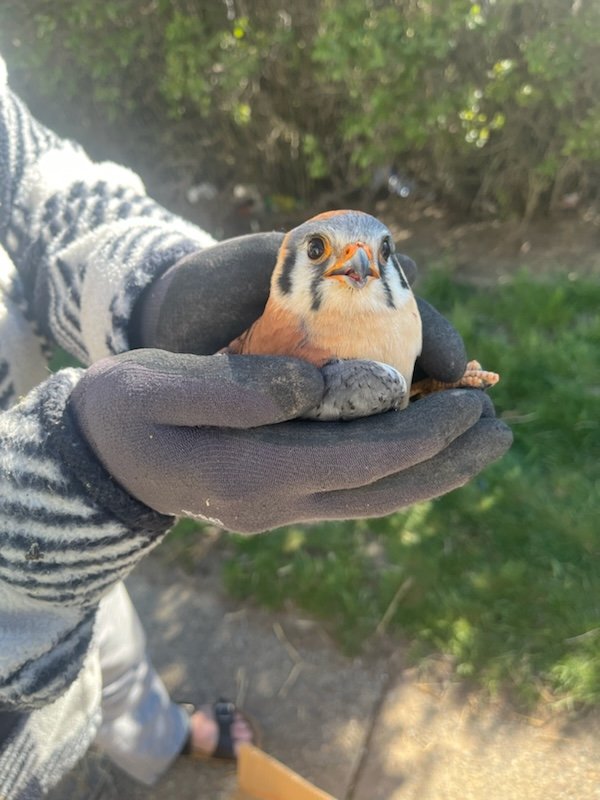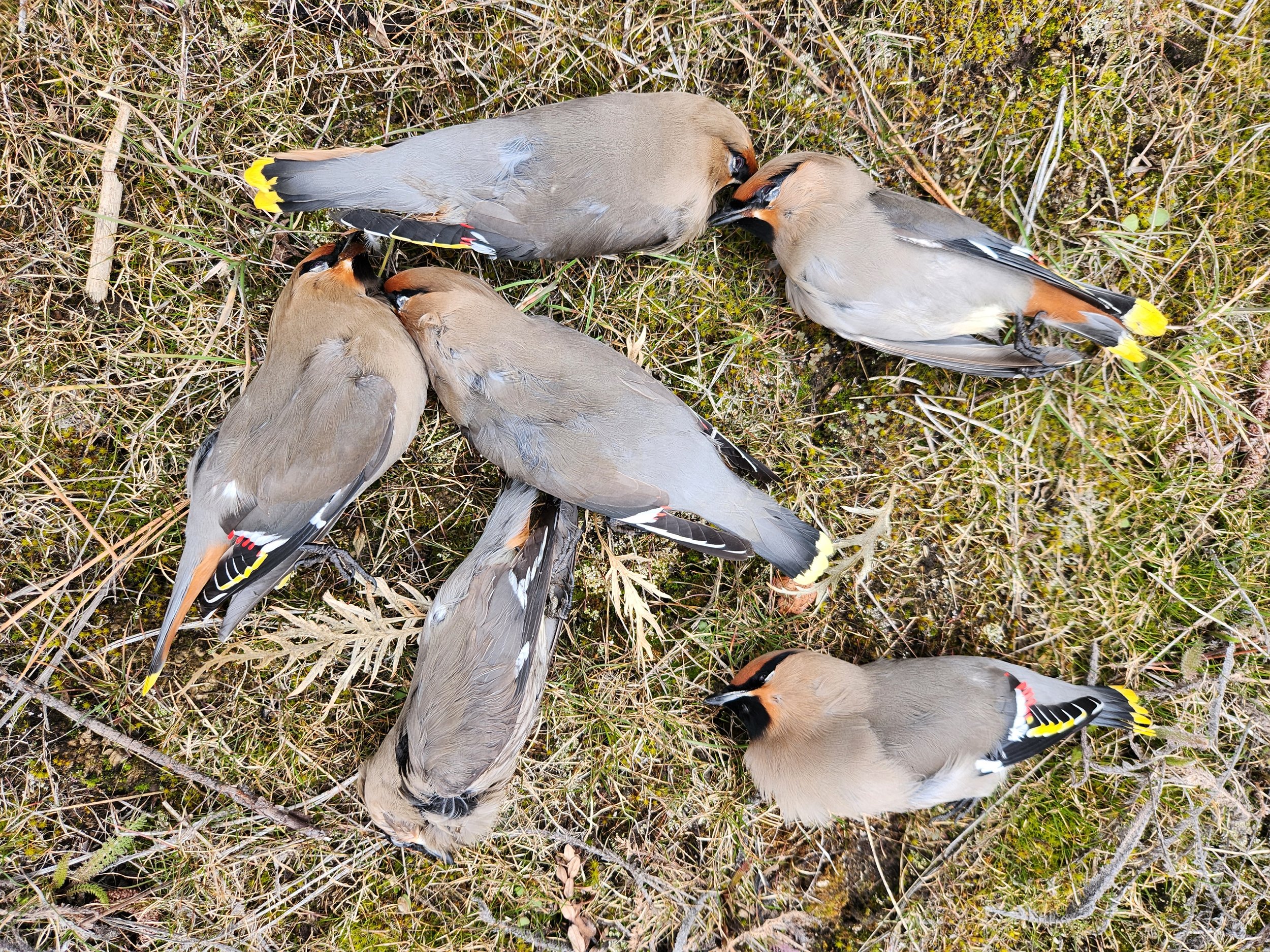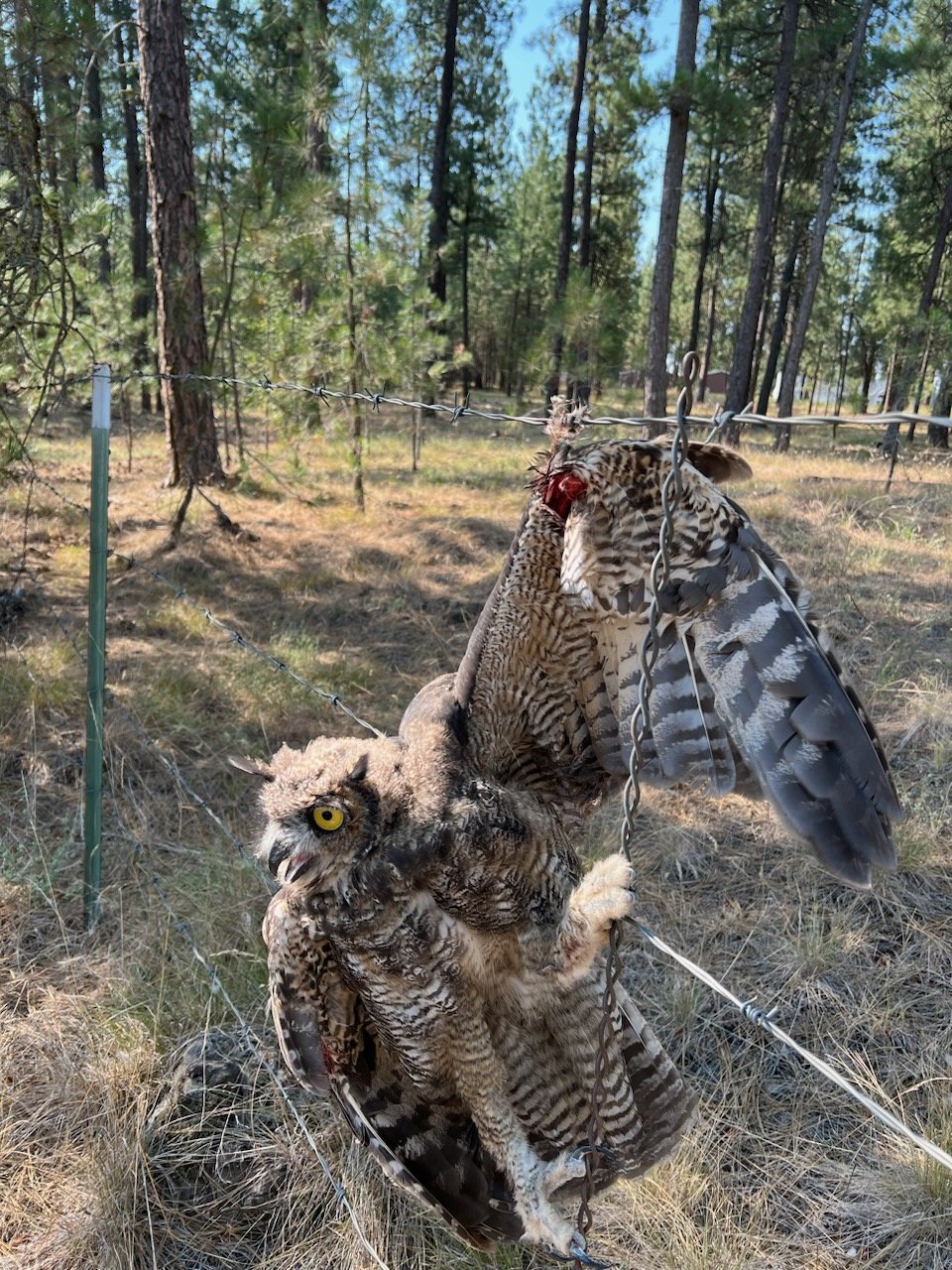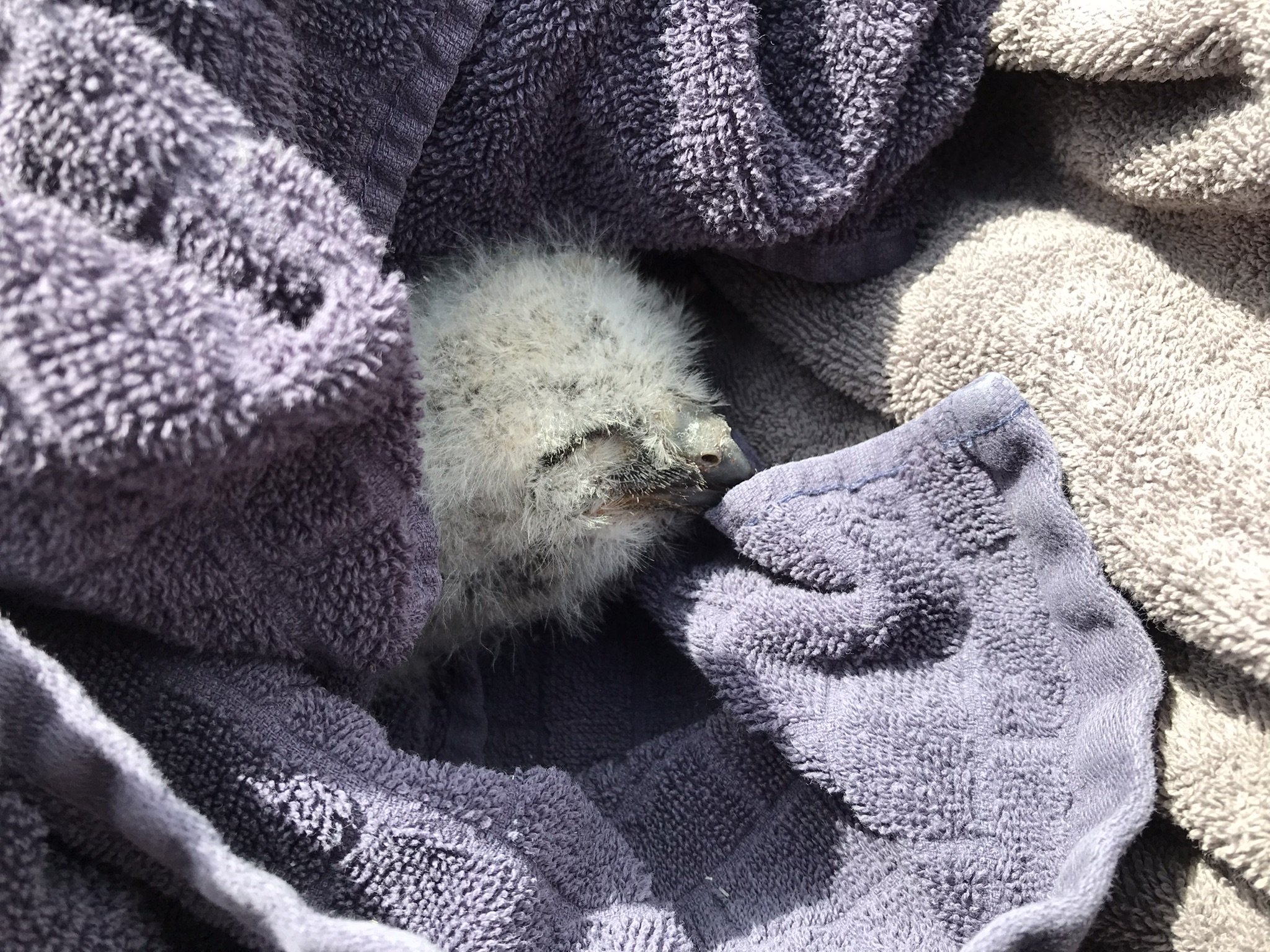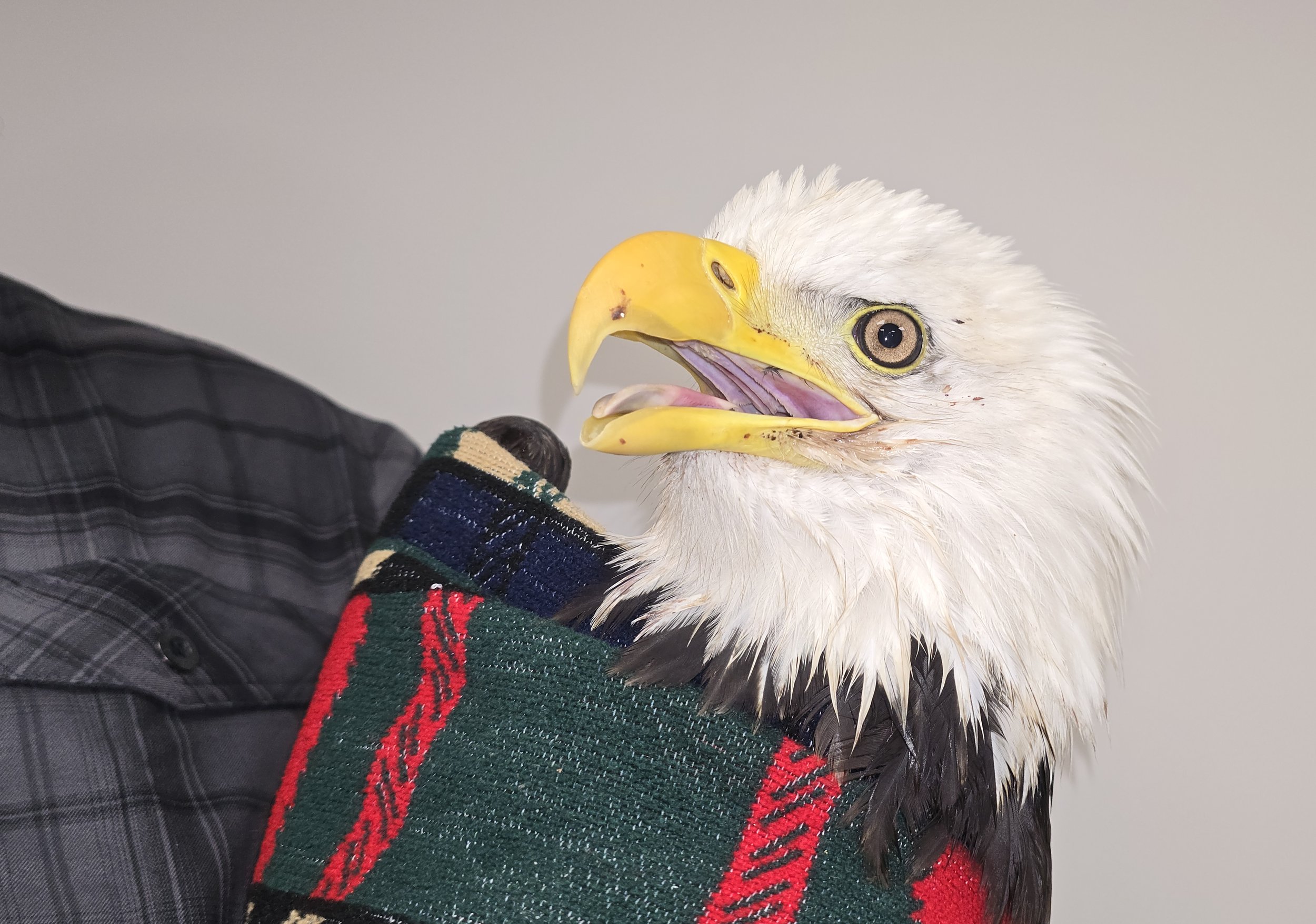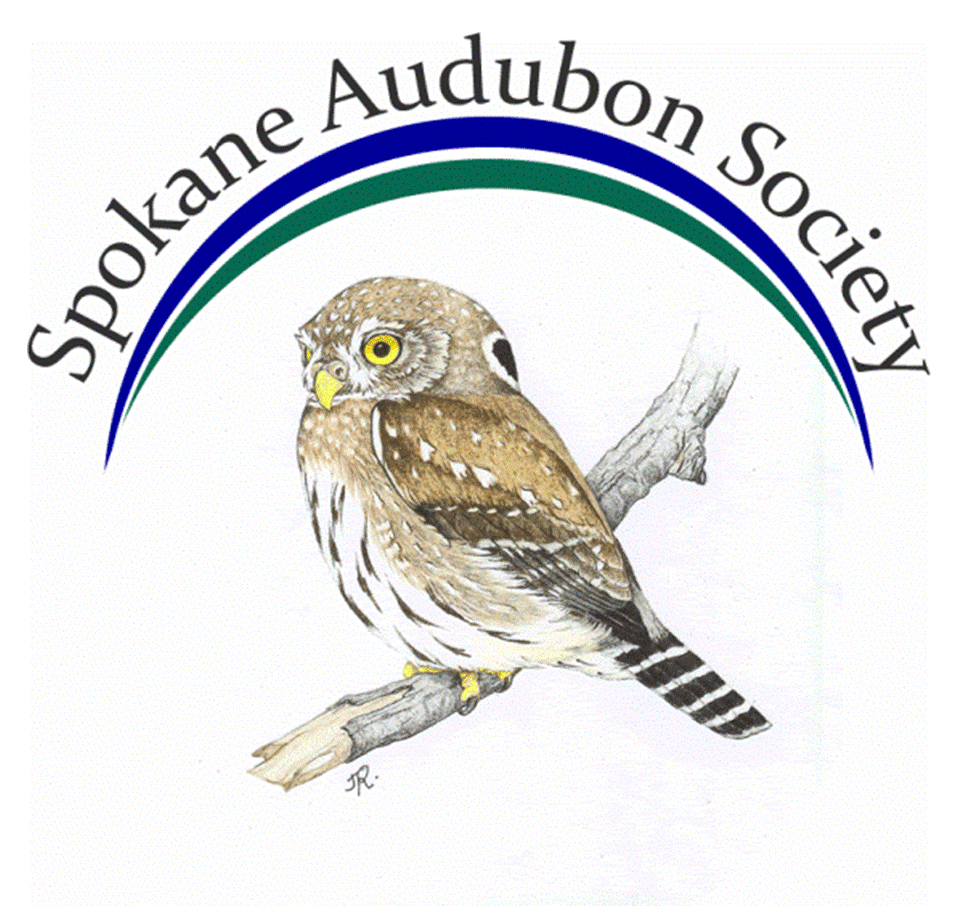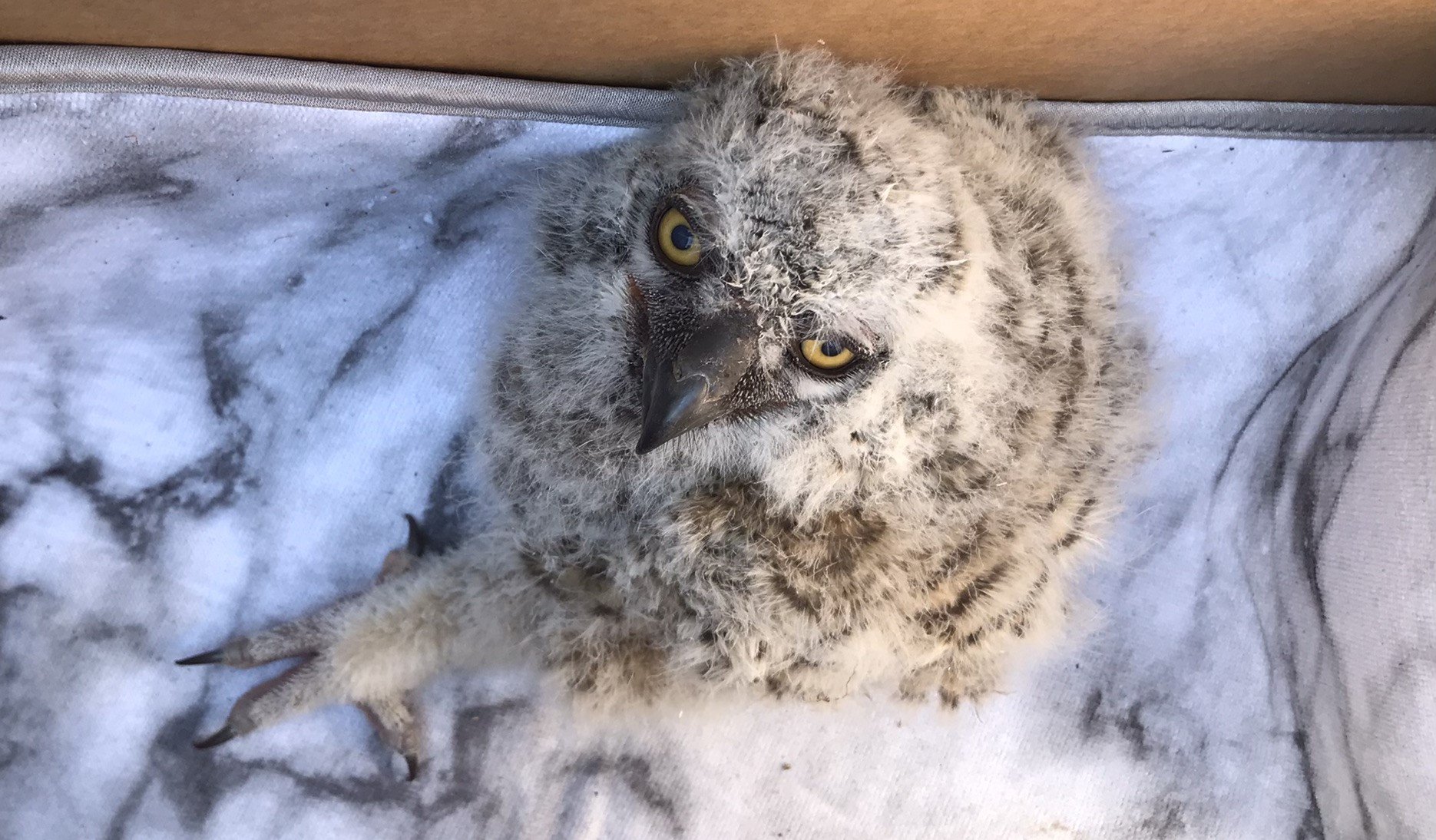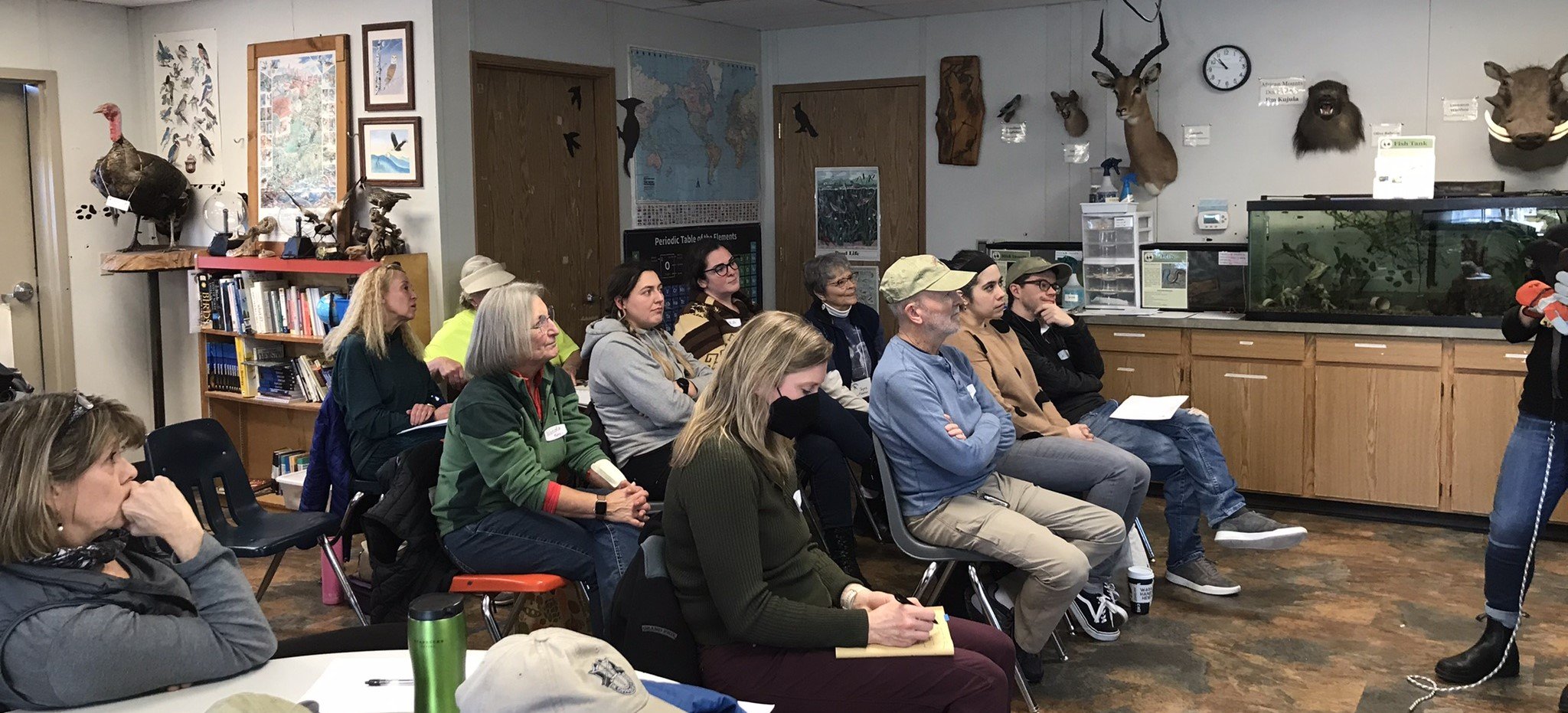Photo above: Rescued Great Horned Owl chick prior to renesting.
Training class for Spokane Audubon’s Save-A-Bird volunteers.
The Spokane Audubon Society’s Save-A-Bird Team was organized in 2021 following a high number of young birds jumping or falling out of nests during record-high temperatures of a “heat dome” in the Spokane area. At that time, there were no licensed wildlife rehabilitators in the county who were willing to advertise their voluntary public services through the Washington Department of Fish and Wildlife (WDFW), so birds needing care had to be transported to the closest facility, Washington State University’s Wildlife Ward in Pullman, nearly 90 miles south.
The Save-A-Bird Team works with WDFW’s Eastern Region office staff in Spokane Valley who forward requests for help from citizens who find birds in need (both nestlings on the ground and injured or diseased adult birds.) Team volunteers monitor a dedicated email account and respond to direct inquiries with a phone call. Actions may include advice or physical capture and transport to a partnering local veterinarian for stabilizing treatment or humane euthanasia. Although a newly-licensed wildlife rehabilitator in Spokane now takes raptors and corvids, many cases still require transport to Pullman.
Save-A-Bird volunteer works to extract a Great Horned Owl that is stuck in the grill of a car.
Being a small, all-volunteer group, the team prioritizes birds based on species. Apex predators such as raptors (eagles, hawks, falcons, and owls) are the highest priority, followed by corvids (raven, jays, and magpies), then waterfowl and perching birds. Click here to watch the release of a rescued and rehabilitated Bald Eagle back into the wild.
Low priority birds are game birds such as turkeys, quail, and common waterfowl (geese). Some of these species have such high populations they are considered a public nuisance, or are too large or dangerous to capture. Team volunteers do not intervene on behalf of non-native species such as pigeons, starlings, and house sparrows, as these birds compete with native species for food and habitat.
Spokane Audubon’s
all volunteer team
work tirelessly
to
help injured birds
In 2023 Save-A-Bird volunteers spent 300 hours and drove 5,000 miles responding to questions and incidents from the public about sick or injured birds. Injuries are due to excessive heat, window strikes, collisions with vehicles, cats, and other traumas. The team responded to 249 incidents involving 47 different bird species.
Spokane Audubon’s Bea Harrison with rescued owlet.
The Save-A-Bird team is looking for volunteers! Experience capturing birds is not needed and we will provide support and training. Drivers willing to travel to a participating local veterinary clinic or to Washington State University in Pullman are needed and mileage reimbursement is available.
Although Save-A-Bird is run by volunteers, financial support is needed to purchase equipment such as gloves, nets, and ladders for safe capture of birds, plus mileage reimbursement for volunteers. Please consider making a donation to help save birds! A donation of any amount helps fund this important work. Check to see if your company offers matching donations to maximize your contribution!
